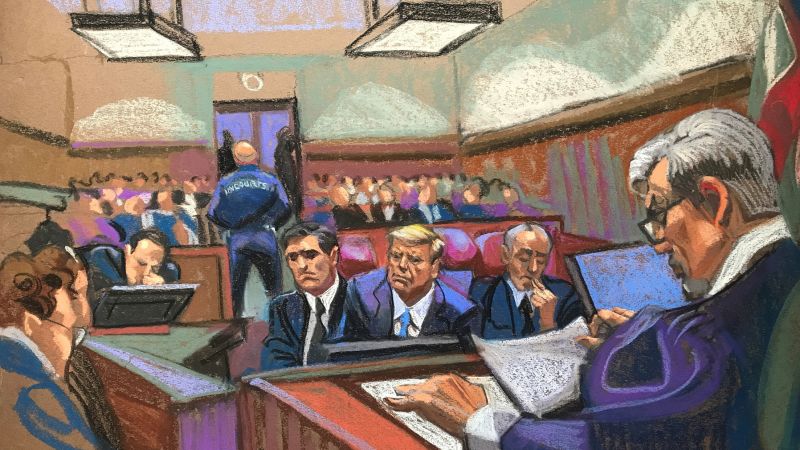The concept of anonymous juries, a practice becoming more common in high-profile cases, aims to protect jurors’ identities. This practice dates back to 1977 when an anonymous jury was empaneled in New York for the trial of Leroy “Nicky” Barnes, a drug kingpin. This practice is meant to provide a layer of protection for jurors doing their civic duty, but the increasing prevalence of social media poses challenges in maintaining anonymity. In the case involving former President Donald Trump and his hush money trial in New York, both prosecutors and Trump’s defense are closely scrutinizing potential jurors’ online profiles and backgrounds.
In the Trump trial in New York, the identities of the jurors have been largely sealed, with information about them kept confidential. An anonymous jury was also used in the trial that found Trump liable for sexual abuse and defamation, with the identities of the jurors unknown to both legal teams. However, maintaining anonymity in the age of social media is challenging, as evidenced by a juror who had to be excused after her identity was exposed. Despite efforts to protect jurors’ privacy, Trump has fueled conspiracy theories claiming that “undercover Liberal Activists” are attempting to infiltrate the jury, despite no evidence to support this claim.
An infamous case involving mob boss John Gotti highlighted the risks of anonymous juries, where a juror with organized crime connections was able to influence the trial outcome. While Trump’s case differs significantly from cases involving organized crime, the intense support he garners from his followers and the potential threat of violence necessitates caution and anonymity for the jurors. However, the practice of anonymous juries can be seen as conflicting with the Sixth Amendment of the Constitution, which guarantees a public and impartial trial.
Judge Juan Merchan has cautioned against publishing details that could unmask jurors and has prohibited the inclusion of certain information that could compromise jurors’ identities, such as physical descriptions and workplace details. Investigations into jurors are ongoing, with Trump’s defense and prosecutors scrutinizing jurors for any potential biases or issues that could affect the trial. Despite challenges in maintaining anonymity, a full 12-person jury has been seated for the trial, with jurors shouldering the responsibility of judging a former president.
The weight of serving on a jury in such a high-profile trial can be jolting for jurors, particularly given the intense media scrutiny and public interest in the case. Jurors who may have initially underestimated the gravity of their role find themselves thrust into a significant position that requires impartiality and fairness. As the trial proceeds, the focus remains on maintaining jurors’ anonymity while ensuring a fair and transparent legal process for all parties involved.


